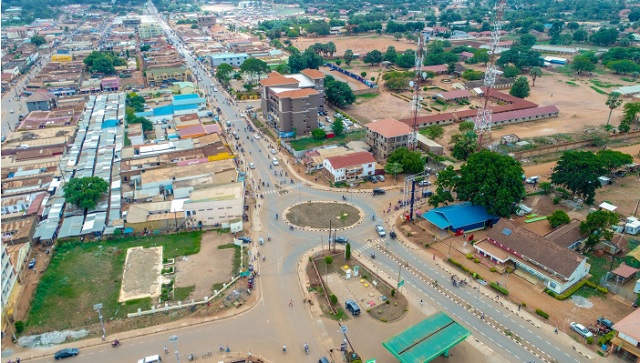
A comprehensive and strategic approach to address the concerns raised by the global bank should be developed
COMMENT | SIMON M. MUTUNGI | On Aug.08, the World Bank announced that it is halting new loans to Uganda over the country’s controversial Anti-Homosexuality Act (AHA). The United States-based development financier said the law was against its institutional values and that it would pause future financing pending a review of measures to protect sexual and gender minorities from discrimination and exclusion in its projects.
However, President Yoweri Museveni has remained defiant over the suspension stating that Uganda will reduce its borrowing and tap into alternative sources and oil production expected to start by 2025.
Uganda’s partnership with the World Bank dates some 60 years back when it became its member. Since then, the Bank has been instrumental in the reformation of the country’s economy through financing and technical assistance notably in shaping the liberalization policies and economic adjustment programs in the late 1980’s.
The finance suspension has potentially significant implications for Uganda’s economy, development projects, and overall financial stability. Below is a brief discussion on four of the most likely outcomes:
1. Reduced development projects
The World Bank provides loans and grants to support development projects in various sectors such as infrastructure, education, healthcare, and poverty reduction. While the suspension of financing is not meant to halt ongoing projects, it will delay the initiation of new projects, leading to a slowdown in development efforts. As of December 31, 2022, the World Bank’s portfolio stood at US$5.4 billion, comprising 22 national and 4 regional projects. The urban sector dominates the portfolio with a share of 25%, followed by energy at 15%. The portfolio also includes US$$791 million (most of which is in grant form) from the Window for Host Communities and Refugees focused on supporting the implementation of Uganda’s integrative refugee policies. According to the Bank’s website, a few of its most recently approved projects through its International Development Association unit include; Uganda Climate Smart Agricultural Transformation Project (US$354.70 million), approved on December 22, 2023 aimed at increasing productivity, market access, and resilience of select value chains in agriculture; Generating Growth Opportunities and Productivity for Women Enterprises Project (US$217 million), approved on June 17, 2022, aimed at increasing access to entrepreneurial services that enable female entrepreneurs to grow their enterprises; and the Greater Kampala Metropolitan Area Urban Development Program ($566 million), approved on May 31, 2022, aimed at improving the institutional capacity and increasing access to improved infrastructure and services.
In June 2020, the Uganda COVID-19 Response and Emergency Preparedness Project (UCREPP) was largely funded by the World Bank to a tune of US$300 million in budget support operations. This boosted the government’s capacity to prevent, detect and treat the coronavirus, protect the poor and vulnerable population and support economic recovery.
These projects are mostly impacting the lower and perhaps middle class and not the elite. If future projects are compromised, there will be a direct impact on the livelihood of those at the bottom of the economic pyramid. What happens to these people when Uganda faces another COVID or Ebola like pandemic in the near future? Without the expected funds, the government might need to adjust its budget and National Development Plan III/IV, potentially affecting public services and social programs.
2. Economic instability
Within hours of the World Bank announcement, the Ugandan shilling had posted the biggest loss across all currencies worldwide, registering its lowest drop in almost eight years at US$1=3,729 as of Aug.08 The first victim of the suspension was therefore the Shilling. As with any currency depreciation, the plunge of the shilling if not remedied, may lead to imports becoming more expensive, resulting in inflationary pressures, export competitiveness, worsening trade balance, capital flight, undermining consumer and business confidence among other effects.
Uganda’s budget for FY 2023/24 is Shs 52.7 trillion with a significant domestic borrowing of Shs 3.2 trillion, and external financing of Shs 8.3 trillion. The biggest concessional lender financing this budget is the World Bank. The recent suspension has forced parliament back to the drawing board to make cuts to expenditure. Museveni has also highlighted that the government will reduce borrowing to counter the effects of this suspension. This is perhaps the only silver lining in a rather dark cloud as Uganda’s debt levels reach unsustainable levels. Nonetheless, it will impact government expenditure.
However, with the funding gap caused by the suspension, the government may now resort to domestic borrowing. Currently, the government is the largest borrower of domestic market credit and it has often crowded the private sector out of the credit pool, creating excessive demand for credit. This has often translated to higher interest rates. Yet in mid-June this year, Museveni had vowed to roll back on government domestic borrowing in a bid to drive down these interest rates. With reduced foreign borrowing options, Museveni is unlikely to deliver on this promise and Ugandans will continue bearing the brunt of the currently prevailing excessive high interest rates as they compete with the government for domestic credit.
3. Reduced investor confidence
The World Bank’s partnership with Uganda has often boosted investor confidence in the country. The Multilateral Investment Guarantee Agency (MIGA), another member of the World Bank Group has a portfolio of a combined gross exposure of US$463.8 million as of December 31, 2022. These are political risk insurance guarantees meant to promote foreign direct investment in the country. A suspension of such guarantees will reduce investor confidence, discouraging foreign direct investment flows in Uganda.
4. Debt management crisis
Lastly, Shs 17 trillion of the Shs 52.7 trillion FY2023/24 budget is allocated towards debt repayments and servicing. Since part of the budget is financed by the World Bank, the suspension of its financing may impact the country’s ability to service its debt, potentially leading to a default on loans.
Way Forward
Museveni seems to have hedged his bet on revenues from oil production and alternative financiers in response to the suspension. However, most of this revenue is going to the investors. TotalEnergies and CNOOC have 85 percent in the Petroleum Upstream projects and 70 percent in the EACOP project.
According to the Petroleum Authority of Uganda, the government is entitled to a net take of US$2.6 billion annually from the Upstream project and US$ 400 million from the EACOP project. Government is also expected to collect US$3.3 billion from the refinery and applicable taxes. This creates some US$ 6.3 billion in annual government revenue allowing for some cushion against the World Bank financing gap.
However, as per the law, most of this petroleum revenue is earmarked for infrastructure leaving out other critical sectors like health and agriculture. These sectors have previously been some of the biggest benefactors of World Bank concessional loans thus the suspension leaves their future in a questionable state. With a US$ 1,069.2 million fiscal deficit as of March 2023, Uganda cannot at this point in time, afford to strive without some form of development assistance.
As such, a comprehensive and strategic approach to address the concerns raised by the World Bank should be developed. This includes reconsidering the Anti-Homosexuality Act or at the very least developing separate policies that ensure sexual minorities will not be discriminated against in future World Bank financed projects.
Another alternative is improving domestic revenue mobilization within the context of expanding the tax base and improving tax collections. Currently, Uganda has a low tax-to-GDP ratio of 13.9% with a paltry 2.5 million Ugandans registered as taxpayers. Of these, only around 750,000 are active taxpayers including individuals and corporations. Efforts to ensure efficient tax collection and widening of the tax base through the inclusion of the informal sector are within the government’s capacity and should be stepped up.
Lastly, Uganda can leverage regional agreements such as the African Continental Free Trade Area (AfCFTA) Agreements to enhance its trade and balance of payments (BOP) position by tapping into the benefits of regional integration, expanding market access, and fostering economic cooperation. Regional agreements can provide a platform for harmonizing trade policies, reducing trade barriers, and encouraging cross-border investment. Further, seeking markets outside the East African Community will help Uganda mobilize extra forex, better balance of payment position and narrow the financing gap it currently faces. A notable example of this is how Kenya’s recently reduced issuing of export permits to Uganda’s powdered milk forced the government of Uganda to initiate talks with Algeria under the auspices of AfCFTA. As of May 2023, Algeria was in the advanced stages of an agreement to take up to Shs 1.5 trillion worth of Ugandan milk. These and similar actions will go a long way in making a 61-year-old Uganda, economically self-sustainable and less dependent on external finances.
*****

Simon M. Mutungi holds a Masters in Development Finance as a Mandela Rhodes Scholar from Stellenbosch University Business School.
 The Independent Uganda: You get the Truth we Pay the Price
The Independent Uganda: You get the Truth we Pay the Price


